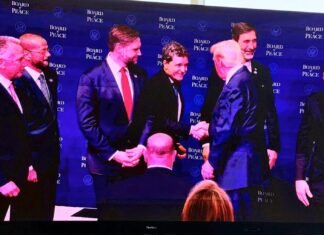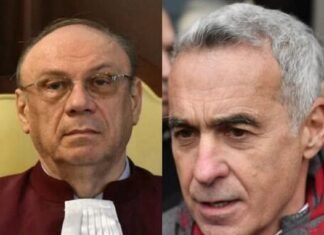The Constitutional Court of Romania (CCR) has issued a final ruling rejecting Călin Georgescu’s candidacy for the upcoming presidential elections. In a significant decision, the court dismissed appeals concerning the Central Electoral Bureau’s (BEC) earlier decision to deny the registration of Georgescu’s candidacy. Additionally, appeals against the registration process of Nicușor Dan’s candidacy were also turned down.
The rejection of Călin Georgescu’s candidacy follows a series of debates and legal challenges regarding both his eligibility and the procedural aspects of his application. Georgescu had aimed to position himself as a viable candidate for the presidential elections, but his aspirations have now been hindered by the court’s ruling. The implications of this outcome are notable, particularly as he represented views that resonate with a segment of the electorate seeking alternative political options.
Nicușor Dan, another prominent figure in the political arena, faced a separate but parallel line of scrutiny regarding his candidacy. Although his application managed to navigate through the initial stages, the court’s decision to dismiss the challenges against his registration suggests that he will retain his position as a candidate in the elections. This situation has sparked discussions regarding the political landscape in Romania and how these legal rulings may shape the competition leading up to the elections.
Reactions from political parties following the court’s decisions have been varied. The AUR (Alliance for the Unification of Romanians) and POT (Partidul Oamenilor Tineri) have both expressed their views on the matter. AUR’s representatives criticized the decision, arguing that it hinders democratic participation. They emphasized the importance of allowing diverse voices and candidates in the political arena, underscoring their belief that a lack of varied candidacies limits voter choice and undermines the electoral process.
On the other hand, representatives from the POT have commended the court’s decision, suggesting that the rulings reflect a commitment to upholding electoral integrity and ensuring that candidates meet necessary legal standards. They argue that adhering strictly to eligibility criteria is crucial in maintaining public trust in the electoral system, thereby reinforcing confidence in democratic processes.
The reactions highlight a broader discourse in Romanian politics regarding the balance between inclusivity and adherence to legal frameworks within the electoral process. As the country gears up for the presidential elections, the focus is likely to remain on the qualifications of candidates and the integrity of the electoral process, crucial factors that may influence voter sentiment and turnout.
Overall, the developments surrounding Călin Georgescu and Nicușor Dan’s candidacies are indicative of the complex nature of the electoral landscape in Romania. With the CCR’s recent decisions now set in stone, political parties will need to adapt their strategies accordingly. The landscape will undoubtedly evolve as public opinion continues to shape the narratives around these candidates, making the upcoming elections a focal point of interest for both supporters and critics alike. As the nation awaits the presidential race, these rulings will have lingering effects on the political discourse and the broader implications for democracy in Romania.






